Many know that occupational therapists help with driving rehab, but how about driving retirement? It is a HUGE shift to go from driving to not driving and what is our role in preparing our patients with this transition? The more we can help our patients explore alternative options, the easier it will be for them in the future.
Terri Cassidy OTD, OTR/L, Certified Driving Rehab Specialist, discusses what this looks like, as well as how we can work on these goals for our patients to maintain as much independence in community mobility as possible!
Resources from the show:
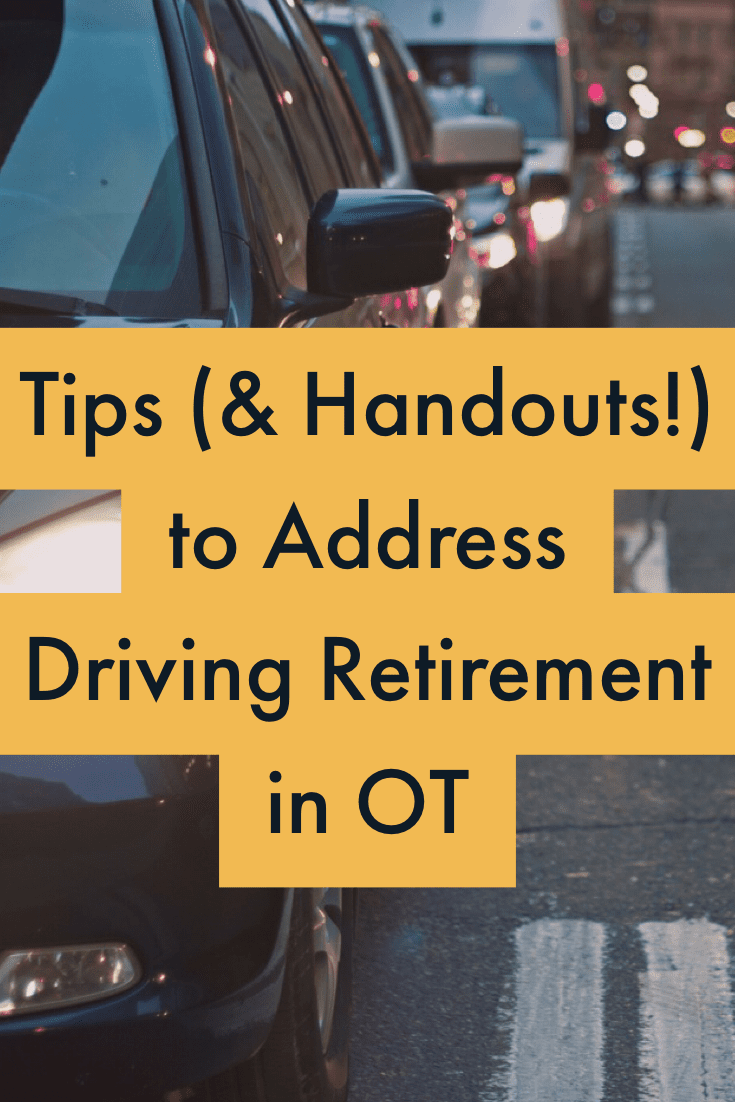
Practitioner Toolkit: The Role of OT in Driving Rehab
Clinician’s Guide to Assessing and Counseling Older Drivers
We Need to Talk: Family Conversations with Older Drivers – “This guidebook gives families easy-to-use, practical information to help them plan ahead and initiate productive and caring conversations with older adults about driving safely.”
At the Crossroads: Family Conversations About Alzheimer’s Disease, Dementia & Drive – “helps families determine when it’s time for loved ones with dementia to stop driving and helps them cope with driving cessation.”
GoGoGrandparent website for on demand transportation companies like Lyft into services that help families take better care of older adults.
Thank You For Listening
I really appreciate you choosing to listen to and supporting the Seniors Flourish podcast. If you enjoyed today’s show, please share it and taking a minute to leave an honest review and rating for the show in iTunes. It really helps in reaching fellow OT practitioners, students and those curious about the OT profession.
Finally, don’t forget to subscribe to the podcast in iTunes to make sure that you never miss an episode!
Are you looking for MORE OT resources and treatment ideas?

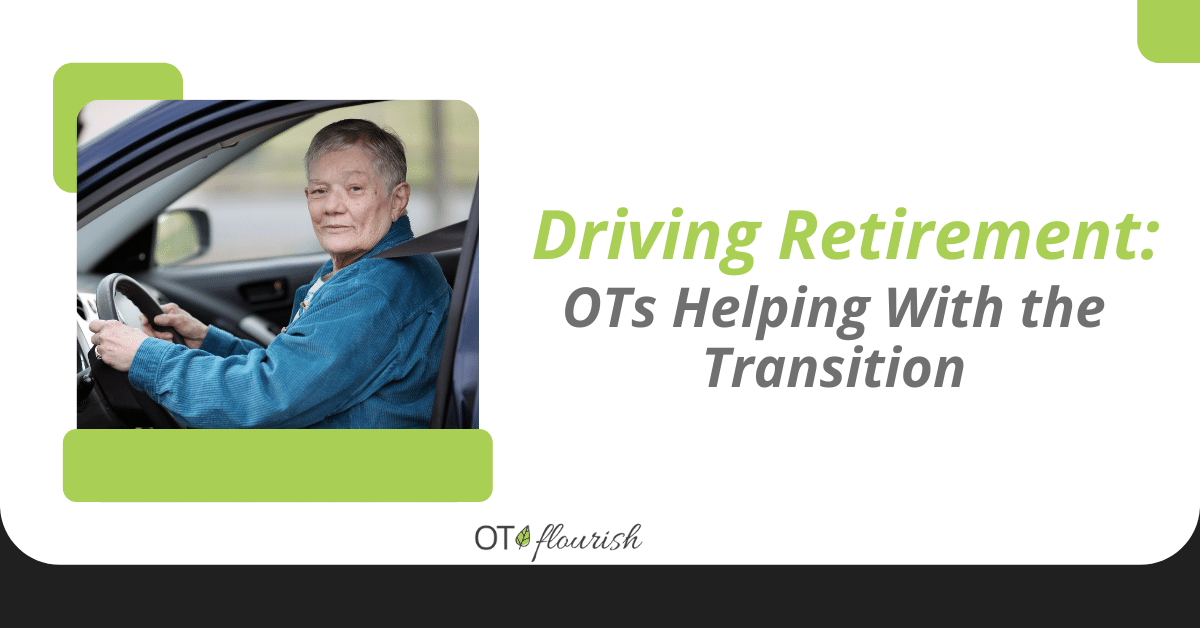
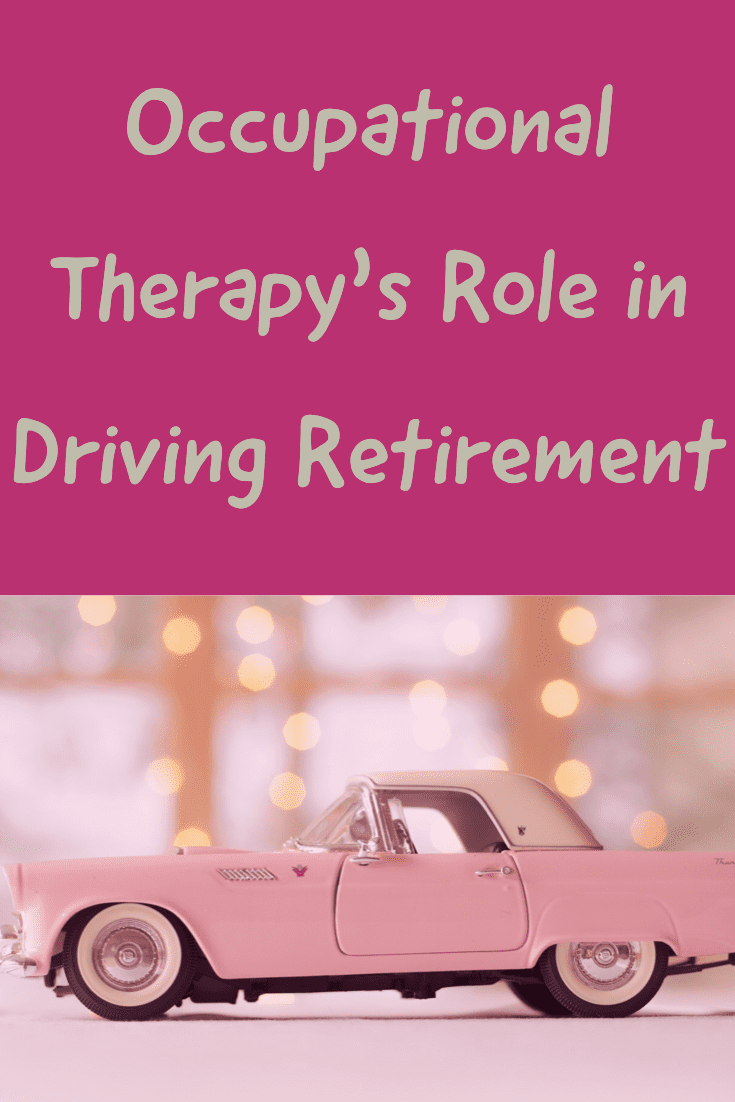
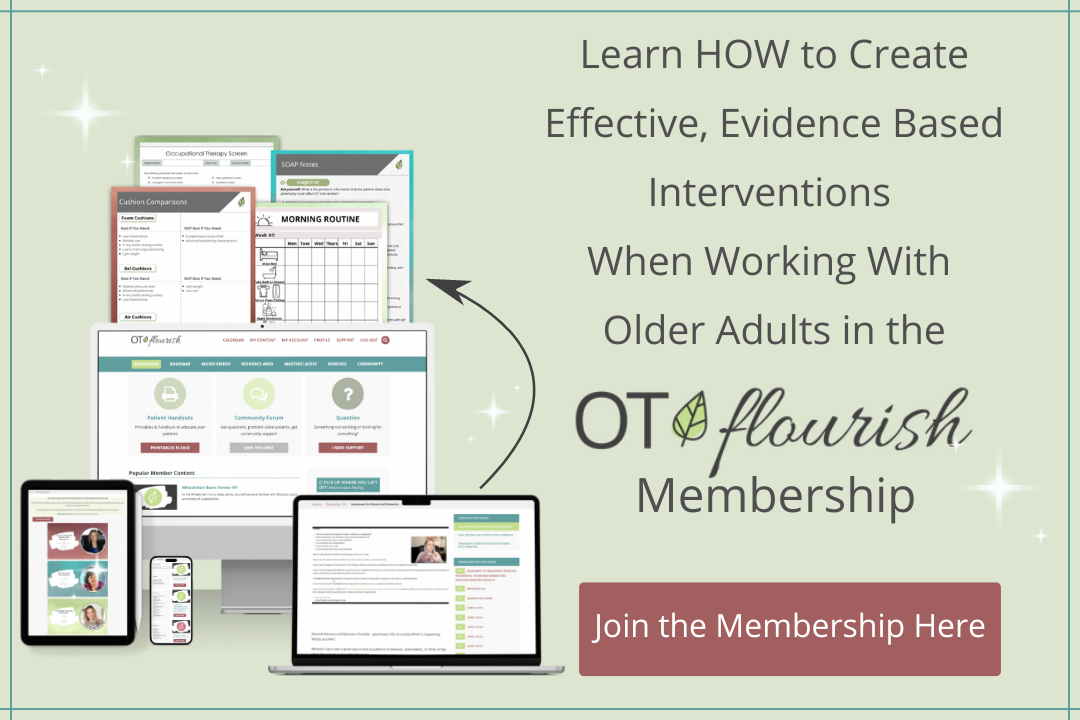

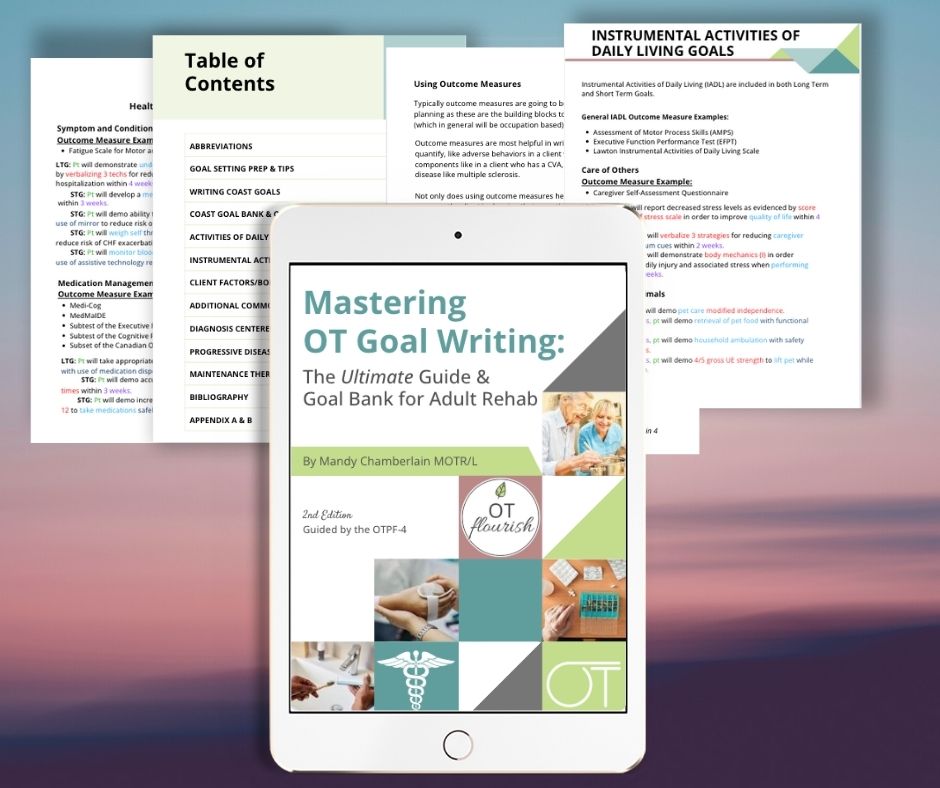

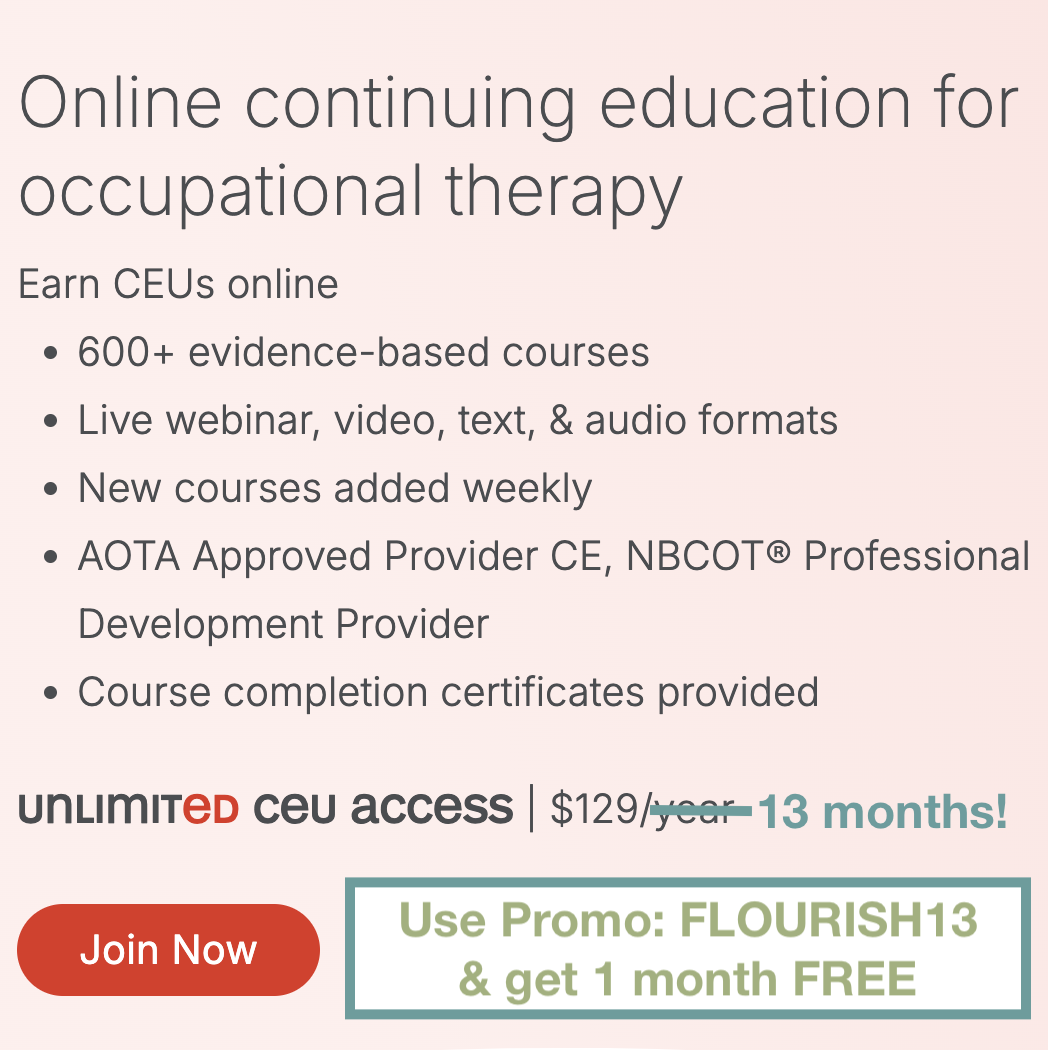
8 thoughts on “Driving Retirement: OTs Helping With the Transition”
So happy to see you address this problem! I own a driving assessment business (18 years), and specialize in testing older adults with dementia. It’s the scariest job I’ve ever had! It is SO sad that these people continue to drive, but if the doctor or family do not take action to stop the individual, somebody has to be responsible for getting these unsafe drivers to stop driving. I just finished writing a book about it, and am in the process of finding a publisher. These people who are living with dementia are a huge risk when they drive. And it is estimated that 30-40% of individuals living with dementia are still driving.
Wow! thanks for the insight Debbie. It is really hard, because from my experience, many of us feel it is the “last” amount of independence to hold on to, so I think it is imperative that we are asking the questions and helping them with this transition by maintaining independence and quality of life!
YEAH! Terri Cassidy is phenomenal!
Great topic and great podcast!
Susie
She really is a “OT driving Unicorn :)” Thanks for listening Susan!
Hi Mandy
love your work.
By the way, the AGS is onto the 4th edition of Counseling older drivers:
https://geriatricscareonline.org/ProductAbstract/clinicians-guide-to-assessing-and-counseling-older-drivers-4th-edition/B047
cheers
Mary
Mandy, I got to listen to the full recording today (had only had a chance to listen to the 35 minutes previously). I love what Terri said about community integration being a societal responsibility 🙂
Also, if it helps, one thing I tend to focus on to guide driving retirement conversations is my three R’s:
R – remove access to the vehicle. This means remove access — don’t just remove a license (someone could forget they don’t have a license or don’t have insurance); and leaving a disconntected car battery, could just result in a call to AAA for a jump start. Borrow the car, get it out of sight, support not driving.
R – replace all routine activities (doctors, grocery, hairdresser, etc.). Help your client’s make a schedule where daughter always gets mom for grocery store on Mondays, or neighbor always picks up dad for mass 7:45am on Sundays, or whatever it is. Figure out those routine things and set a routine. In my experience, those retiring from driving don’t ask and HATE to ask. Even with a routine, you can add in Terri’s great point of bartering.
R – remember the fun – driving is more than just doing the routin things. Driving is about being spontaneous and fun! Remember to do the fun things, the things where the daughter can stop being the adult child caregiver and return to being a daughter, and the parent can once again parent. Go for ice cream! Go for coffee! Stop in for a ride or a visit! Do the fun, spontaneous things that help to make life worth living for all of those supporting each other. Adult grandchildren are especially good for this!
Sending my best!
Susie Touchinsky, OTR/L, SCDCM, CDRS
Adaptive Mobility Services
Driver Rehab solutions for clients & driving rehab education for OTs!
(and friend of the unicorn Terri!)
OT driving Unicorn, you’re in trouble now Terri!
Thanks for all you do for our profession Terri, and thanks to you Mandy for this platform!
ha! Thanks so much for listening 🙂